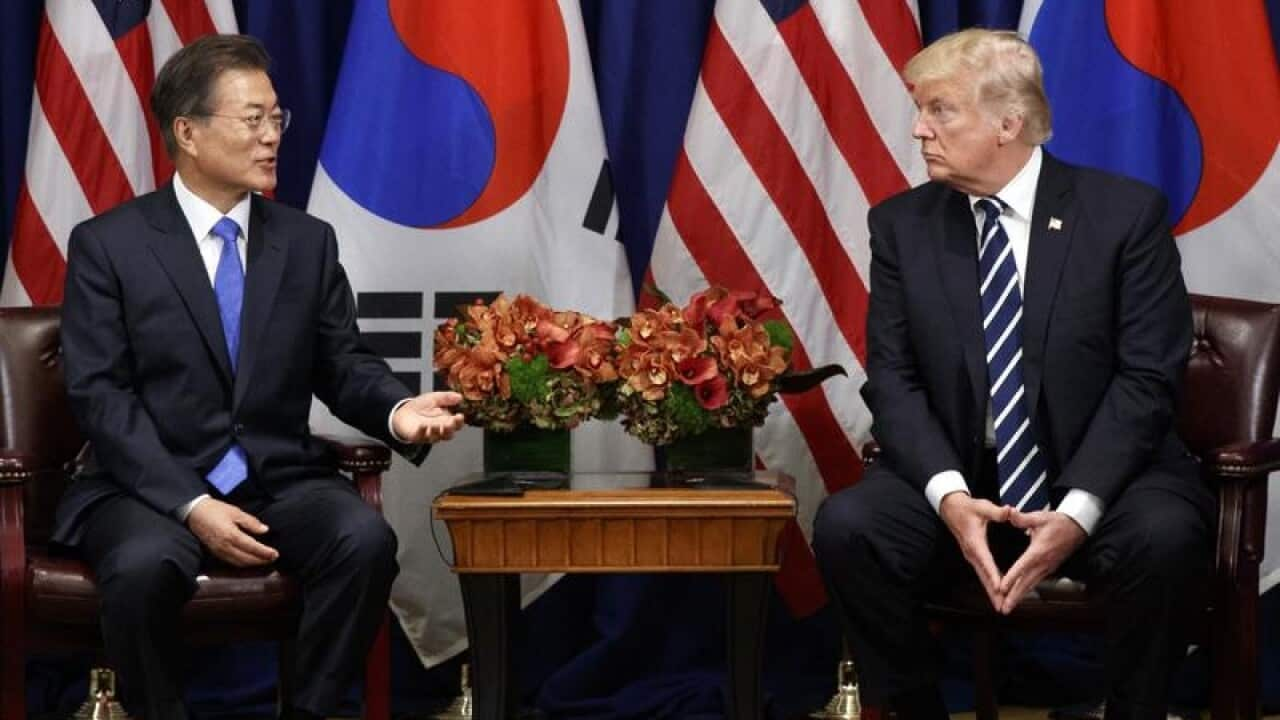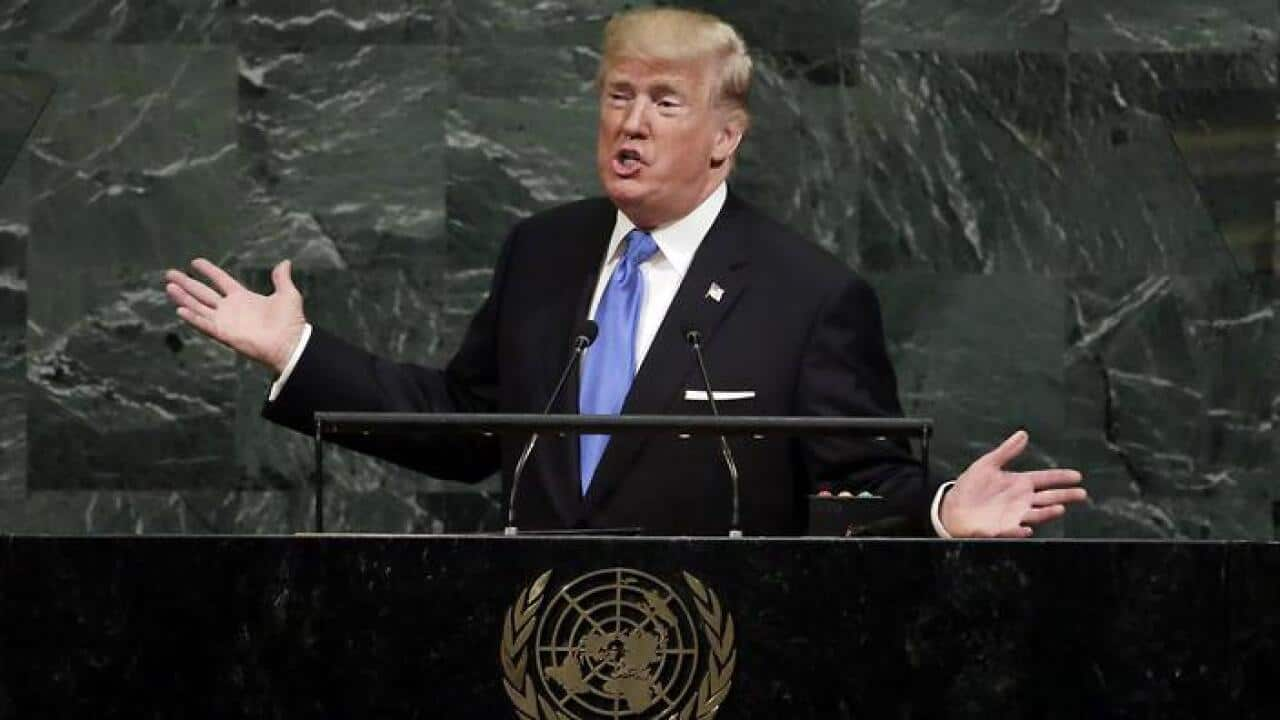After threatening to "totally destroy North Korea" in his first address to the General Assembly, US President Donald Trump signed an executive order targeting foreign companies doing business with North Korea, ratcheting up pressure on Pyongyang.
In Brussels, the 28-country EU agreed to a ban on investments in North Korea and on EU exports of oil, diplomatic sources said.
Trump said China's central bank had ordered national banks to curb their dealings with North Korea, describing the move as "very bold" and "unexpected."
The threat from North Korea's nuclear and missile tests has dominated this year's gathering of world leaders, but divisions remain over how to confront Pyongyang.
Australian Foreign Affairs Minister Julie Bishop welcomed the new round of sanctions.
Ms Bishop, speaking to reporters at the United Nations in New York on Thursday, said Australia will continue to review the autonomous sanctions it has on North Korea to ensure the rogue regime is compelled to return to the negotiating table and halt its nuclear and missile program.
North Korea in recent weeks detonated its sixth nuclear bomb and has test-fired intercontinental missiles -- saying it needs to defend itself against hostility from the United States and its allies.
Washington and its allies hope the tough economic sanctions will sway Pyongyang to come to the table and negotiate an end to its nuclear and missile programs.
The US administration has refused to offer North Korea incentives to open negotiations and has ramped up threats of military action to force leader Kim Jong-Un -- whom Trump has dubbed "Rocket Man" -- to change course.
But meeting with Japanese Prime Minister Shinzo Abe and South Korean President Moon Jae-in, Trump said "Why not?" when asked whether there could be a dialogue with North Korea.
Related Reading

EU agrees on new sanctions against North Korea: sources
South Korea warns on 'accidental' clashes
In his address to the UN assembly, Moon struck a different tone after Trump's fiery speech, saying the crisis needs to be "managed" to prevent an accidental outbreak of war.
Moon said South Korea was not seeking the collapse of its neighbor and was ready to help if Pyongyang decides "to stand on the right side of history" and halts its provocations.
"The situation surrounding the North Korean nuclear issue needs to be managed stably so that tensions will not become overly intensified or accidental military clashes will not destroy peace," Moon said.
The South Korean leader nonetheless voiced support for sanctions, calling for all nations to implement the latest UN Security Council resolution that bans North Korea's textile exports and end contracts for guest workers.
The United States has separately imposed unilateral sanctions, some of which target firms from China which is the primary economic partner of North Korea.
But the executive order would broaden that approach, in a bid to force Chinese banks and Russian importers to decide between doing business with North Korea or being blacklisted by the United States.
"Our new executive order will cut off sources of revenue that fund North Korea's efforts to develop the deadliest weapons known to humankind," Trump said.
At a Security Council meeting later Thursday, US Secretary of State Rex Tillerson was to push for strict enforcement of a new raft of international sanctions targeting North Korea's exports and its energy supplies.
The council last week adopted the latest sanctions, a significant intensification of the punitive measures aimed at cutting off revenue used by Pyongyang to develop its military programs. But their impact hinges mostly on China.
Merkel disagrees with Trump
China's Foreign Minister Wang Yi and his Russian counterpart Sergei Lavrov, who will also deliver their speeches on Thursday, have called for diplomatic talks and warned that military action would be catastrophic.
Commenting on Trump's fiery speech, French President Emmanuel Macron surmised that the "military threats can serve a purpose from a tactical point of view" to jolt Pyongyang into changing course.
"When you consider him and his father, it was only when such threats were made that negotiations did happen," Macron told reporters.
But German Chancellor Angela Merkel was in "clear disagreement" with Trump, saying in a radio interview that "any kind of military solution is completely deficient."
Opening this year's gathering, UN Secretary-General Antonio Guterres warned that "fiery talk can lead to fatal misunderstandings" that could ignite a nuclear war, and called for a political solution.
Guterres is due to meet on Saturday with North Korean Foreign Minister Ri Yong-Ho on the sidelines of the assembly to send out feelers on possible diplomatic talks.
Ri, who takes the podium on Saturday, dismissed Trump's threats to destroy his country as "a dog's bark" and said they would have zero impact.










